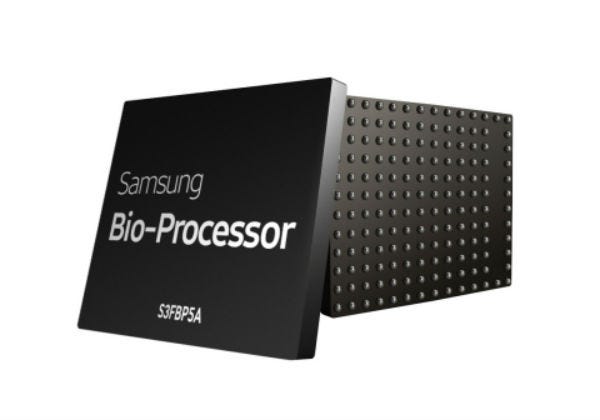Samsung Wants to Make Wearables More Useful
December 29, 2015
FitBit has coasted to a $7.5 billion valuation by selling products that primarily track steps. Samsung has announced that it has developed a processor for wearables that can do much more: gauging body fat, skeletal muscle mass, heart rate, skin temperature, and stress levels.
Brian Buntz

Little has changed with fitness trackers since the first FitBit was announced in 2008. Current-generation devices may offer improved designs and somewhat improved functionality, but they still are primarily glorified pedometers.
Samsung, one of the biggest R&D spenders in the world, is hoping to change that by developing a technology known as Bio-Processor for wearables that can monitor body fat, skeletal muscle mass, heart rate, skin temperature, and stress levels. The company states that devices using the processor are supposed to start shipping in the first half of 2016.
In early 2015, many reports about the Apple Watch suggested that Apple's wearable would contain a bevy of health-tracking features. When the product debuted, however, it only offered a pulse monitor and activity tracker.
While competition in the wearables niche is already strong, it will likely pick up steam in 2016 as the market for the devices tripled in 2015. This year, manufacturers shipped 72.5 million wearable devices as compared to 25.3 million devices in 2014, according to a Berg Insight report. The market research firm anticipates that the market for wearables will increase nearly five fold by 2020, to 228.3 million units.
While Samsung offers wearable devices, it recently dropped out of the list of top-five firms active in the niche. Currently, Samsung trails FitBit, Apple, the Chinese firms Xiaomi and BBK, and Garmin when it comes to wearable device sales.
To promote its Bio-Processor, Samsung released the following video:
Samsung explains that the Bio-Processor, which it bills as the industry's first "all-in-one health solution chip," is already in mass production.
Company spokesperson Ben K. Hur is quoted calling the processor "the most versatile health and fitness monitoring chip available on the market today" adding that it "is expected to open up many new health-based service options for our customers."
The device itself integrates analog front ends, a microcontroller unit, a power management integrated circuit, digital signal processor, and eFlash memory. Despite offering so many discrete parts, the processor is said to take up roughly one quarter of the real estate of other motion-tracking chips.
The chip can integrate analog front-end signals including bioelectrical impedance analysis, photoplethysmogram, electrocardiogram, skin temperature, and galvanic skin response.
Learn more about cutting-edge medical devices at MD&M West, February 9-11 at the Anaheim Convention Center in Anaheim, CA. |
About the Author(s)
You May Also Like


